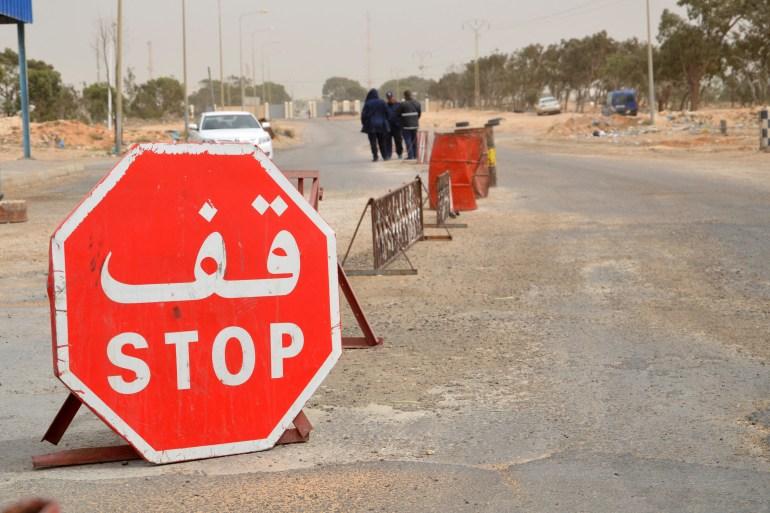Source: ALJAZEERA
ALJAZEERA MEDIA NETWORK

The livelihood of Ben Guerdane's residents was tied to the Ras Jadir border crossing. Its shutdown has deeply impacted them.
Ben Guardane is stagnant, Mohammed reports.
The money-changing booths stay quiet, and the makeshift markets near the saltwater inlets into this Tunisian border town are deserted. These markets used to trade in goods sneaked from Libya into Tunisia.
![A merchant speaks in a shop at the deserted Maghreb souk of Ben Guerdane on June 4, 2021 [Fathi Nasri/AFP]](https://nowtrends.net/storage/2024/06/7SU0ZJTJHBQ2_EP2MBXFWCHFQ.jpg) A merchant speaks in a shop at the deserted Maghreb souk of Ben Guerdane on June 4, 2021 [Fathi Nasri/AFP]
A merchant speaks in a shop at the deserted Maghreb souk of Ben Guerdane on June 4, 2021 [Fathi Nasri/AFP]
Life in Ben Guerdane revolves around the border. From the era when local tribes guided trans-Saharan caravans to the formal establishment of the border in 1910, both legal and illegal trade have sustained the town.
Over many years, traders and smugglers became integral to the community, operating with tacit approval from authorities in exchange for keeping the area stable at no cost to the state.
However, this changed starting in 2014, as ISIL forces, with significant participation from Tunisian recruits, took control of areas like Sirte in Libya, Gaddafi's hometown.
In 2016, ISIL fighters attempted to advance into Tunisia and attacked Ben Guerdane, but they were repelled by Tunisian forces, who then remained in the town, significantly reducing its autonomy.
Security on the Tunisian side is now state-managed, while the Libyan side is controlled by the Amazigh tribes of Zuwara, who have a tenuous relationship with Libya's recognized government in Tripoli.
Securing the Ras Jedir border crossing would be valuable for any faction vying for power in Libya.
Before its closure, Ras Jedir had miles of trucks transporting goods for Tunisian markets, circumventing heavy import taxes by routing through Libyan ports before crossing into Tunisia.
Also present were numerous flatbed trucks with heightened suspension, transporting a variety of goods like mobile phone cases and Hello Kitty backpacks to markets across Tunisia.
![Hundreds of small fuel shops selling fuel brought over from Libya like this one stand near the roads in southeast Tunisia [File: Pau Gonzalez/Al Jazeera]](https://nowtrends.net/storage/2024/06/LP3SF2DQR1Z0_8X10RN7DZZXQ.jpg) Hundreds of small fuel shops selling fuel brought over from Libya like this one stand near the roads in southeast Tunisia [File: Pau Gonzalez/Al Jazeera]
Hundreds of small fuel shops selling fuel brought over from Libya like this one stand near the roads in southeast Tunisia [File: Pau Gonzalez/Al Jazeera]
Estimating the value of goods passing through Ras Jedir is difficult.
In March, Libyan Interior Minister Imad Trabelsi referred to Ras Jedir as "one of the biggest smuggling hubs globally," valuing the illicit trade at "about $100 million weekly."
"On a slow day, up to 300 trucks, 5,000 cars, and 10,000 people can cross at Ras Jedir. That's on a slow day. The taxation and bribes involved amount to significant money," Hamza Meddeb, a researcher at the Carnegie Middle East Institute, told Al Jazeera.
The Tripoli government trying to control this lucrative crossing was inevitable.
The clashes between Zuwara fighters and Tripoli's interior forces closed the crossing, but other political and economic factors likely prolong the closure.
"There could be multiple reasons," Meddeb explained. "It might be linked to disputes between interim Prime Minister Dbeibah and the Central Bank, or issues regarding Libyan funds in Tunisian banks."
He added, "International allies of Tripoli and Tunis, like the UAE and Turkey, could also play a role."
Libyan lawmakers seeking legitimacy against a rival parliament in Benghazi believe controlling Ras Jedir would enhance their credibility internationally.
The Amazigh, harshly repressed under Gaddafi, seek control to ensure their people's political and economic future.
Despite Libya's oil wealth, the country still imports much of its refined fuel, sold domestically at subsidized rates but smuggled across borders at profit.
Bloomberg's investigation found up to 40% of Libya's imported fuel ends up smuggled to places like Europe, Turkey, Sudan, and Tunisia via Ras Jedir.
"Smuggling is integral to Libya's borderland economy," said Jalel Harchaoui from the Royal United Services Institute. "NOC doesn't even report these fuel losses."
"The Dbeibah government's recent attempt to seize Ras Jedir was poorly executed," he added.
"It's taken weeks for the Ministry of Defence to broker peace between Amazigh and interior forces. Defence officials seek stability. Tunisia wants its border open and trade flowing," Harchaoui remarked.
For Mohammed, dependent on the border's irregular work, the political intricacies don't matter.
He just wants his town to come back to life.
Your email address will not be published. Required fields are marked *